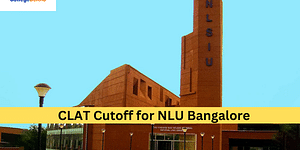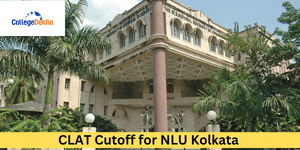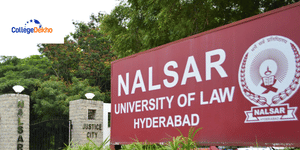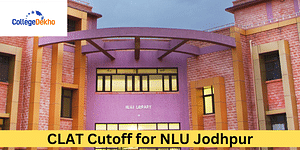Related News

Admission to Law Colleges Despite Low Rank in CLAT
CLAT (Common Law Admission Test) is a national-level law entrance exam conducted every year for students who want to pursue law in government and private colleges in India. The CLAT 2026 exam was conducted on December 7, 2026 across the country. After passing the CLAT, you can apply for 3-year or 5-year Integrated LLM and LLB programs. Every year, the 26 members of the CLAT Committee take the CLAT exam, administered by NLU (The National Law University). The leading law universities in India use CLAT scores to select students for various legal programs. The number of candidates appearing for CLAT is increasing every year but the seat intake remains more or less the same.

CLAT 2026 Cutoff for NLU Bangalore
TThe CLAT 2026 cutoff for NLSIU Bangalore round 1 is 1 to 101 for General category students, for SC it is 384 to 3072, for ST it is 357 to 5000, for OBC it is 128 to 1018, for EWS it is 154 to 702. TThe CLAT cutoff is the minimum rank that aspirants need to get into their desired NLU. NLU Bangalore is one of the leading law colleges in India which has high cutoff marks as compared to other law institutes. The CLAT Consortium will release the CLAT 2026 cutoff marks for all the participating National Law Universities after each round of counselling.

CLAT 2026 Cutoff for NLU Bhopal
CLAT 2026 Cutoff for NLU Bhopal: The National Law University will accept admissions to undergraduate law courses based on the CLAT 2026 exam and ranks. The CLAT 2026 exam will be held on December 7, 2025, and the cutoff for the same are expected to be released following the announcement of the result. While the cutoff are determined based on several factors such as the overall difficulty of the exam, number of applicants, etc, past years’ trends help you predict qualifying marks. The CLAT 2026 cutoff for NLIU Bhopal for round 1 for BA LLB (Hons) is 149 to 432 for general category, for OBC it is 1038 to 1714, for SC it is 4073 to 5407, for ST it is 5520 to 9461, for EWS it is 959 to 1315. For B.Sc. LL.B. (Hons.) [Cyber Security] the general category cutoff is 586 to 684,for EWS it is 1358 to 2056, for OBC it is 1870 to 2326, for SC it is 6980 to 7996, for ST it is 8675 to 10429.

CLAT 2026 Cutoff for NLU Kolkata
CLAT 2026 was conducted on December 7, 2025 and the aspirants are looking forward to the cutoff list. To get into NLU Kolkata, students should aim to score 92+ out of 120. The CLAT cutoff for WBNUJS Kolkata for the general category is 102 to 284, 2878 to 3833 for the SC category, 4338 to 6010 for ST category, 287 to 746 for GC-WB category, 5996 to 9275 for SC-WB category. The CLAT Consortium will release the separate cutoff lists for UG and PG courses of NLU Kolkata on the official website during the CLAT 2026 counselling process. The students who clear the cutoff can participate in the CLAT counselling rounds. Those who aspire to be admitted to NLU Kolkata must check out the expected CLAT cutoff scores from this article.

CLAT 2026 Cutoff for NLU Hyderabad
The CLAT 2026 rank for NALSAR Hyderabad for round 1 is 17 to 148 for general category, for SC it is 712 to 3259, for ST it is 370 to 5200, for GC-TL it is 188 to 565, for OBC it is 407 to 915, for ST-TL it is 6913. CLAT 2026 was conducted on December 7, 2025. NLU Hyderabad is one of the top-ranked law colleges in India with a good NIRF ranking year after year. The Consortium of the NLUs releases the CLAT 2026 cutoff for NLU Hyderabad on its official website during the counselling process.
Top Courses at Government Law College, Madurai
Related Questions
Admission Updates for 2026
Dr. M.G.R. Educational And Research Institute
Chennai (Tamil Nadu)
Vel Tech University
Chennai (Tamil Nadu)
Ramaiah Institute of Legal Studies
Bengaluru (Karnataka)
Dhanalakshmi Srinivasan University, Samayapuram, Trichy
Tiruchirappalli (Tamil Nadu)








